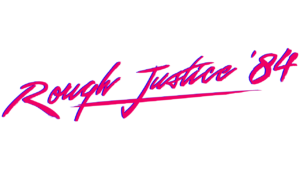As game developers, it is important for us to get a firm grasp on the world that we are trying to create, and we occasionally interview professionals that can give us a deeper understanding of the themes that permeate the game.
We had the opportunity to sit down with Blonde, who worked as a debt collector in a previous life. Not everyone is cut out to be a debt collector. It’s often stressful and is quite a demanding job. In order to be a successful debt collector, a cool head and decorum are required. Critical thinking and negotiable skills are highly valued. By the nature of the job, debt collectors are faced with both typical and unique circumstances. We picked her brain in this interview and delved into the world of a debt collector.
Gamma Minus: How did you get into this field of work?
Blonde: I was already working for the Australian Federal Government under the Department of Human Services portfolio and transferred to the (then known as) Child Support Agency for a better career opportunity – it wasn’t until my first day of training that they announced that the team I was recruited for was part of an Intensive Debt Collection initiative, and that was when I became a debt collector. It was certainly a far cry from my days as a child dreaming of what I was going to be when I grew up.
Gamma Minus: Did you have to often deal with irate customers? Which methods did you utilize?
Blonde: Often people believe that working in debt collection would bear the brunt of irate and volatile customers, but in all honesty, those instances didn’t happen as often as one would think, especially with a caseload of serious avoiders of paying child support. I didn’t often have calls returned or responses to letters I would send, so a lot of the work performed was leaving voicemails. We’re permitted under legislation to enact enforcement action without a court order to recover funds as a last resort, and they usually weren’t very friendly discussions. There’s a lot of resilience training involved, especially when 3 emotive issues are at the core of why someone isn’t paying: money, separation, and children. Usually, if I had someone screaming down the phone at me, I used to say nothing and just let them run out of steam eventually. The key was to try and retain control of the call and listen to any issues/objections they had so that I could also identify ways to help the customer and address the reasons why they fell behind in their payments and ways to move forward to keep the payments sustainable. It takes time to build up confidence, resilience, and the art of distancing yourself emotionally from the discussions at hand however they eventually became second nature.
Gamma Minus: What was the most difficult time you dealt with a customer? How did you resolve the issue?
Blonde: (T/W) It’s hard to pick an instance as being ‘most difficult’ because there were many difficult times for many reasons, ranging from emotional distress, physical threats made towards themselves, the other parent and/or children, threats made towards staff, etc. One instance that I’ll never forget was speaking with a gentleman who spoke very softly and matter of fact, but something seemed very peculiar during the course of our discussion, which gave me an off gut feeling. While he was speaking, I heard him cock a gun. We had excellent support from managers who were able to tap into our calls to hear what was happening, and I started waving my arms in the air and had my manager contact the police immediately. Not all interactions were to that extent, and my method was a holistic ‘is this debt correct’ approach. I found that I could build a good rapport with my assigned case files to start chipping away at the debt, make ongoing sustainable payments based on their circumstances, and make referrals for counseling, custody arrangements, etc so that those blockers that were preventing them from making payments could be addressed.
Gamma Minus: Being a debt collector is a stressful profession. How did you handle the stress?
Blonde: Aside from the benefits of working in an office across the road from a pub, usually after a difficult call I would take a walk for 5-10 minutes. I had handheld stress toys in my desk drawer and always made sure to utilize my vacation time regularly. We also implemented a ‘buddy system’ where if we needed to debrief, staff were also available to do this. One of the upsides to working in a phone-based environment is the faces I could also pull while on the phone which helped me through the day on occasion. It was a job I did for almost 10 years, and didn’t encounter a feeling of being burnt out since a good chunk of a typical day was mostly investigating income streams, tax returns, bank statements, and following up on tipoffs, which kept the job interesting.
Gamma Minus: What aspects of the job did you find most challenging?
Blonde: A major one for me was my filter and ALWAYS making sure it was in check no matter who I was speaking to on the phone and trying my best not to react in a manner less than professional. People would call while they were using the bathroom, people would go into explicit details about what did and didn’t happen during the child’s conception – one of the standout calls I received was from someone asking for advice because as their daughter got older, she was beginning to look more and more like his best friend. It’s so hard not to fall into the ‘oh um well um’ stuttering response, so you almost have to become a bit of a robot in anticipation of what you might hear on the other end of the phone.
Gamma Minus: What aspects of the job did you find most rewarding?
Blonde: Having those ‘gotcha’ moments on accounts where attempts have been made for YEARS with no success and finding an avenue to recover funds to clear the debt was an awesome feeling, especially for serious avoiders who worked for cash or were self-employed. I had cases where the ‘children’ of the accounts were older than me (the case had ended, but the debt remained) and making that phone call to the other parent to say ‘I just wanted to let you know you will be getting funds disbursed next week’ also made my day.
Gamma Minus: Did ever feel as if your personal health and safety were in question throughout your time as a debt collector? If so, how did you deal with it?
Blonde: Never. I never gave out my personal information (aside from my first name), the offices were specifically designed where if there were a face-to-face meeting with a customer, they would enter through one door and I would enter through another. The desks were also specifically designed so that someone attempting to jump over it to get to me wouldn’t be able to reach them because of a unique S-shape design.
Gamma Minus: Do you feel that being a woman gave you an advantage or a disadvantage on the job?
Blonde: In the beginning yes it was a disadvantage because my caseload comprised of male debtors, and before my time of working there, the agency did have a bad reputation for calling clients ‘ deadbeat dads’ directly to them over the phone. There were trust issues at play by the public, and rightly so, and that perception of the mentality of staff working there never really went away. As time went on, societal changes started to happen, and I found that I had more female debtors than males by the time I had left the agency. Men were starting to have sole custody and therefore eligible to receive child support payments. Often if I had a new client assigned and they were adamant about working with a male, I happily obliged with swapping casefiles with male colleagues – which some have told me is a discriminatory practice – however, I felt that if someone was willing to negotiate to pay down their debt because they felt more comfortable talking to a male instead of me, I saw that as a win. I did have a client once ask me to have a coffee with them for being so helpful, which I politely declined. They kept insisting on this and (as mentioned before about having my filter in check) after several refusals, I said quite firmly ‘sir, you already have 4 cases; I don’t think you can afford to register a 5th one in the near future’ – luckily he had a good laugh about my response.
We’d like to thank Blonde for taking the time to answer our questions and giving us a deeper insight into the whole debt collection process. Our goal is to utilize this information to make Rough Justice: ’84 a more accurate and realistic experience.










